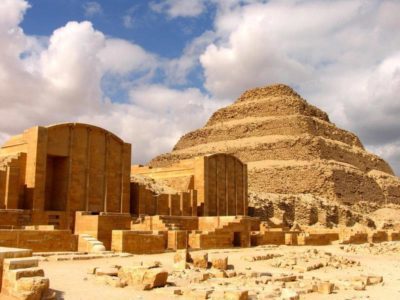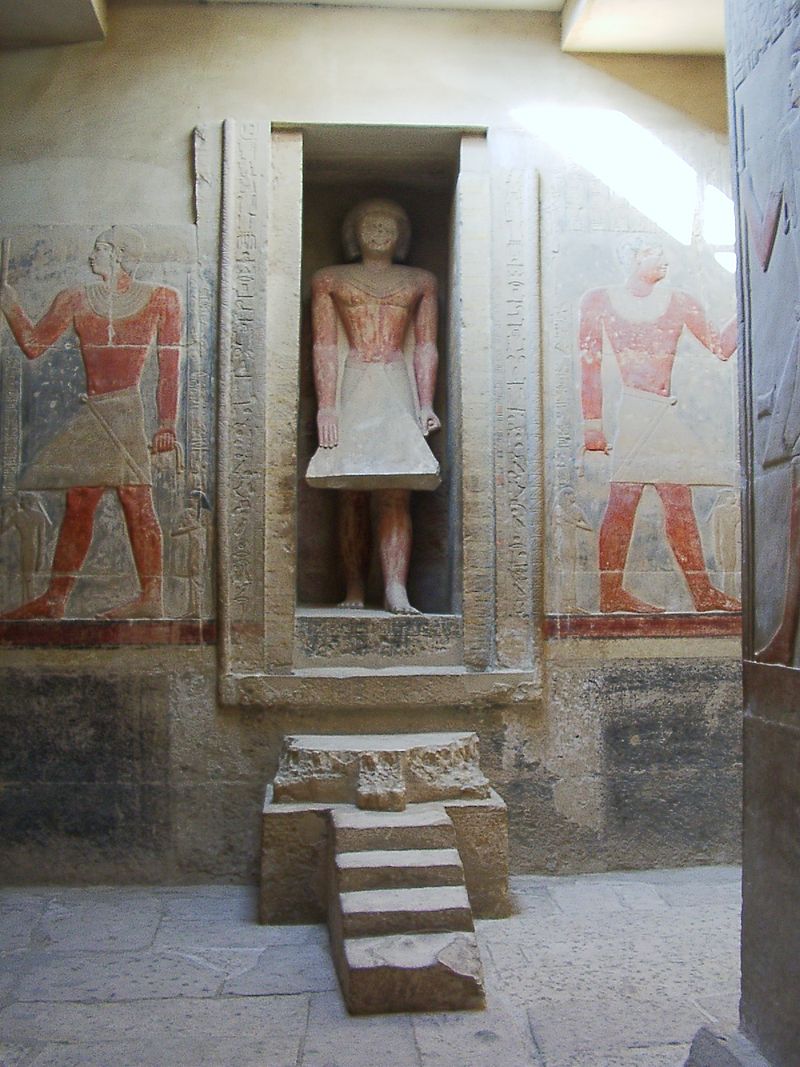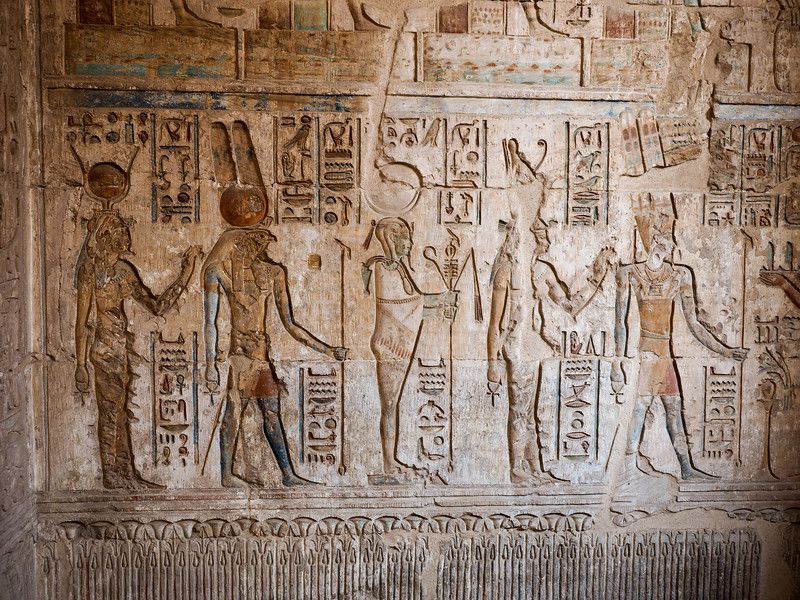Part of the reason for the collapse of the Old Kingdom was the expansion of the power of bureaucrats and local nomarchs. This problem was especially hard to deal with because trying to limit the power of one of these groups would often increase the power of the other. For example, when the fifth dynasty king tried to lessen the influence of royal bureaucrats, he inadvertently surrendered power to the local nomarchs. Reforms to limit the influence of nomarchs often achieved the opposite, surrendering power to the bureaucracy. By the time of the sixth dynasty period, the power of these groups each superseded the pharaoh in real influence. While nomarchs and high-level bureaucrats often received luxurious tombs of their own, by the sixth dynasty their tombs exceeded the tombs of the pharaohs in terms of opulence.
This tomb, for example, was built at Saqqara for Mereruka, an advisor of the pharaoh Teti. With over 30 distinct rooms and passages, it surpasses even many royal tombs in terms of size and splendor, including that of his advisee. This evidences that bureaucrats from this era possessed a lot of wealth, even more wealth than the pharaoh at points.
 |
| Photo By Manmeet Kaur |
So, after the slow decline of the power of the pharaoh throughout the Sixth Dynasty period, local nomarchs assumed the powers once covered by the royal government. Next week, we'll reflect on the achievements of the Old Kingdom, and also learn what happens to Egypt in the immediate aftermath of the Old Kingdom's fall. After that, I'm not sure where next season will focus on, but make sure to keep your eyes open for updates.


Just checking I’m not missing something - there was no ‘next week’ podcast right? We go straight on to Ethiopia?
ReplyDeleteLove the show and thank you, just making sure I’m not missing something
Yes. I never got around to recording it and realized that I'd rather just move on to Aksum
Delete